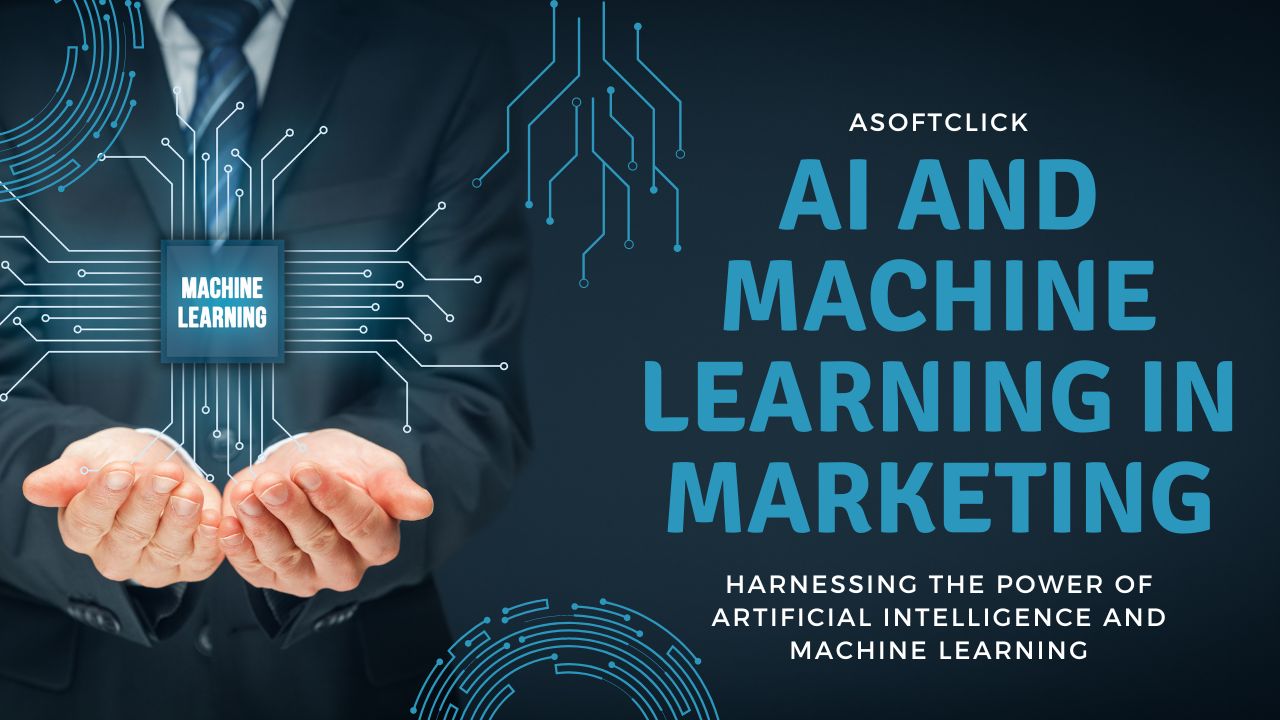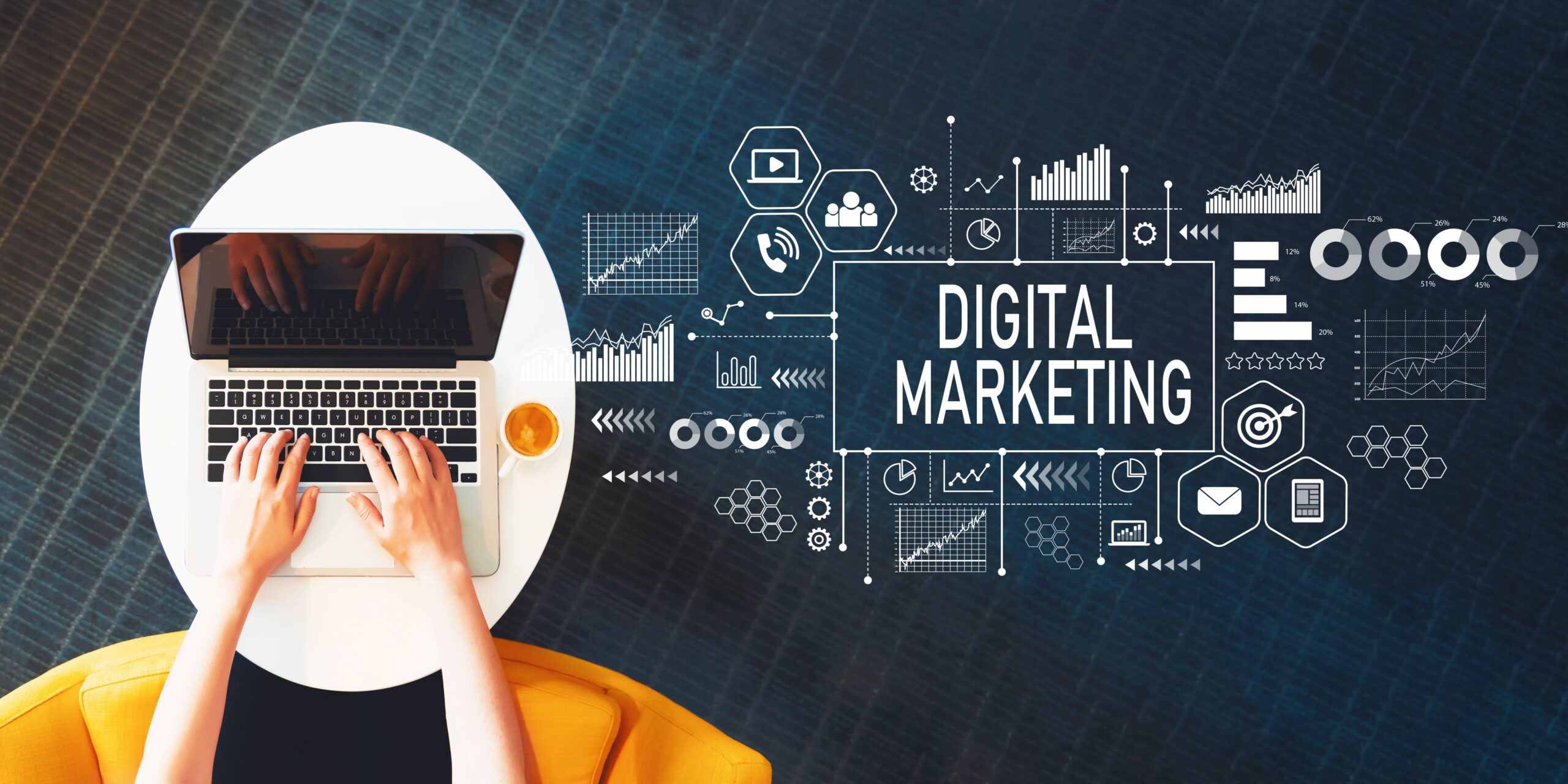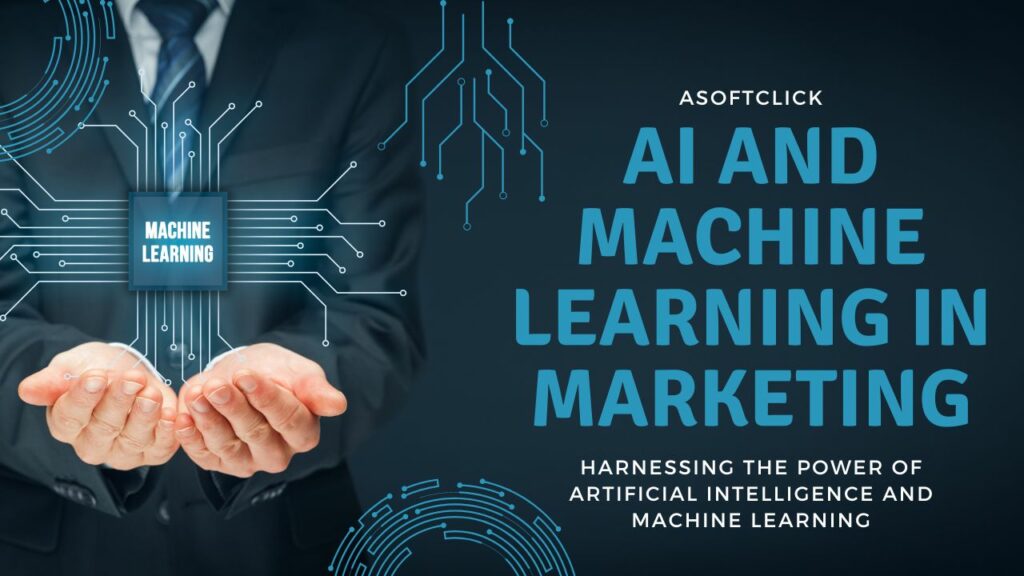 Behind every great business and company is a great marketing team. In order to get products and services consumed by the public it is being targeted, they first need to come across them and become attracted to it. This is where marketing comes in. Synonymous with advertising or promoting, marketing deals with determining and meeting the requirements and desires of consumers. This article will cover AI and machine learning in marketing.
Behind every great business and company is a great marketing team. In order to get products and services consumed by the public it is being targeted, they first need to come across them and become attracted to it. This is where marketing comes in. Synonymous with advertising or promoting, marketing deals with determining and meeting the requirements and desires of consumers. This article will cover AI and machine learning in marketing.
AI and Machine Learning in Marketing
Marketing is definitely a “human-centered” career and industry because it requires its employees and workers to understand what people want and is interested in. However, finding the answers to these questions can take a lot of manpower and time. This is where artificial intelligence (AI) and AI marketing come in. New technological advancements, particularly artificial intelligence software that deals with data analytics and digital marketing helps to bridge these gaps and make marketing more accurate and specialized.
In this article, we’ll be discussing how exactly artificial intelligence and AI tools help make digital marketing much more efficient, accurate, and interactive. It will delve into how machine learning is becoming integrated into different fields of marketing and advertising. Such as marketing data, data analysis, content creation, and more.
You might also like: Logistics Goes Intelligent: The Potential of AI in Supply Chain Management
What is machine learning?
Before exploring how artificial intelligence impacts marketing, we first need to understand what machine learning is. It is an area of artificial intelligence (AI) that focuses on teaching computers how to learn and make judgments using data. Essentially, it is a set of computer algorithms that are designed to learn from experience. And improve its skills and knowledge over time.
Machine learning algorithms train on massive datasets to find patterns, correlations, and insights. These may be helpful in making predictions or taking action. There are different categories of machine learning as well. The first is supervised learning, where algorithms are trained on labeled data. And with the right responses provided for each example in the dataset.
Then, there is unsupervised learning, where algorithms are trained to deal with unlabeled data by finding patterns or groups. Unsupervised learning does not provide these algorithms with the “right” answers.
Finally, there is reinforcement learning. Reinforcement learning trains algorithms to make judgments by using trial-and-error training. As well as feedback in the form of incentives or penalties for the algorithm’s behavior.
Machine learning is an extremely flexible concept that can help in many different industries and technology. However, in marketing, machine learning is an especially valuable tool in understanding what people want, and how to address their needs. Other applications of machine learning also include image recognition, natural language processing, recommendation systems, and fraud detection.
Machine learning in online marketing
At its core, marketing is driven by data analysis to accurately understand what consumers want and look for in different products and services. This aspect of marketing is what makes machine learning tools and algorithms so appealing. As such, there are multiple ways that machine learning applies in online marketing strategies.
This subset of artificial intelligence has the ability to deeply analyze different groups of data. Such as customer reception and reviews, existing marketing campaigns and their success, website traffic, and more. Analyzing these kinds of data can be quite taxing when done manually. So machine learning can help in making the process more efficient for marketers and businesses or brands as a whole to figure out much more innovative solutions.
You might also like: AI in Human Resource Management: Enhancing the Recruitment Process
What is the potential of behavioral data?

Data that is gathered based on people’s activities and behaviors are known as behavioral data. When it comes to marketing, behavioral data often concerns user visits and patterns to websites, use of social media, buying patterns, and other similar practices. Behavioral data has enormous promise since it can be used to understand consumer behavior and preferences and to guide business choices across a wide range of sectors.
Behavioral data has the power to provide marketers and promoters with a guide on what their target audiences want. After obtaining insights about consumer behavior and preferences, such as the items that interests them, the channels they like to use, and the variables that affect their purchasing decisions, businesses may tailor their marketing messages and product offers to better suit the interests of specific customers by leveraging behavioral data. What results is the potential for increase in consumer involvement and loyalty. Which is priceless income for brands and businesses.
Why machine learning is effective in marketing
Marketers often follow a routine when analyzing data and finding new ways to create effective marketing strategies. They first develop ideas or hypotheses, then test them, judge them, and analyze them. Because information changes every second, this kind of routine is time-consuming and labor-intensive, and occasionally the findings are inaccurate.
When we use machine learning as a supplemental tool to the marketing process, employees will be able to ease up on tirelessly analyzing data. We can analyze large data sets, like those from social media and consumer data using machine learning algorithms instead. Marketers can instead focus on interpreting the results from this software to find original solutions.
Machine learning is especially valuable because it takes all of these results, processes them, then swiftly organizes them in a way that makes it easy and efficient to understand. In a field where time is of the essence, machine learning makes use of all the time it is provided.
What Is Artificial Intelligence in Marketing?
As mentioned, machine learning is merely a subset of artificial intelligence, which refers to other concepts as well such as language processing and social intelligence. All of these aspects of artificial intelligence can be helpful in marketing. By using artificial intelligence, marketers in making sense of massive volumes of data, gaining knowledge about their clients, forecasting their behavior, and developing more specialized and specialized campaigns.
Getting Started With Artificial Intelligence and Machine Learning in Marketing
Because it is so vast, we can understand artificial intelligence and machine learning when applying it to different aspects of marketing. Here are some of the most popular ways AI is being helpful in digital marketing:
Content Creation

Content is one of the foundations of effective marketing. It is involved in creating all kinds of promotional videos and advertisements, but more commonly, different written content such as blog posts, articles, and headlines. The purpose of content creation is to entertain, enlighten, or educate the audience while also generating traffic, leads, and sales as a secondary objective.
Although AI is still not fully capable of producing editorial or opinion pieces, substantial progress has been achieved to make it possible to produce data-focused content. There are a number of AI tools that are great for creating all kinds of copywriting results with their unique objectives and styles.
Conversational AI

Conversational AI is much different from content creation. Examples of conversational AI are chatbots, virtual assistants, and voice assistants. These tools may be helpful in variety of tasks, including language translation and customer care. Conversational AI is a combination of technologies that allow robots to communicate with people naturally and intuitively, instead of making people stay online for hours on end to accommodate queries from users online.
Audience Segmentation

Audience segmentation is majorly used by marketers and businesses behind the scenes to analyze the reception of their marketing efforts. Artificial intelligence algorithms are used in a process called audience segmentation, and it divides a target audience into groups based on similar traits, preferences, behaviors, and demographics.
Audience segmentation is incredibly valuable because it can help companies identify what consumers prefer and what consumers dislike about their products or services.
Predictive Analytics

Predictive analytics is already a common application of machine learning in marketing. Marketers use it to determine which consumers are most likely to make a purchase, and which channels are most efficient at increasing conversions. And which items or services are most likely to become popular.
It is similar to audience segmentation. But it focuses more on the products and services provided by the company, rather than the target demographics themselves.
Personalization

Personalization is a way for businesses and brands to meet the needs of their consumers. AI can help in providing personalized options for each customer, depending on what their purchasing and browsing patterns are. An example of this is in fashion websites. Artificial intelligence algorithms are used to recommend items and clothing that are related to what a consumer is currently ordering. By offering timely and pertinent information and offers, one of the main advantages of customization in AI marketing is that it may boost consumer engagement and loyalty.
Paid Ads

Paid ads are a way for marketers to attract new consumers to purchase products from a particular business. Artificial intelligence tools can assist in optimizing these ads to best fit certain target demographics, and by also providing results on which ads are doing better than others.
Sales Forecasting

Artificial intelligence technologies are used in sales forecasting to estimate future sales trends and patterns using past sales data. By using sales forecasting AI tools, businesses can modify their production plans and inventory levels to make sure they have the proper items accessible when customers need them by projecting future sales volumes and trends. Similar to how corporations may create more successful sales and marketing strategies that are catered to particular client segments and demographics by projecting sales trends.
Dynamic Pricing

By utilizing changes in demand and supply, dynamic pricing AI can assist firms in strengthening their pricing strategies and boosting income. For example, a hotel may use dynamic pricing AI to alter room rates depending on demand and occupancy rates. Or a retailer can use it to adjust prices for popular goods during busy shopping seasons.
Dynamic pricing tools are special because they take into account prior purchases and purchasing trends. With little to no price changes to encourage purchases.
Recommendation Engines

Applications for recommendation engines in marketing include e-commerce, content marketing, and email marketing. A content marketing platform may use a recommendation engine to propose articles and other material to users based on their interests and behavior. While an e-commerce website would use one to recommend things to consumers based on their browsing and purchase history.
You might also like: How Artificial Intelligence Applications Are Revolutionizing Healthcare
Humans must build business strategies
Though the use of AI is incredibly prolific and helpful, it is important to remember that it cannot do everything. Machine learning and AI tools can only do so much. But they cannot imitate the genuine work of smart and savvy marketers, businessmen, and entrepreneurs. It is up to a company’s employees to employ their own strategies that can bring a company to its success.
Using AI ethically
We should not use artificial intelligence for selfish or malicious purposes. One of the greatest sins that we can commit is plagiarism when using AI tools. Because they essentially compile together information that is readily available on the internet to rehash it to other users. Therefore, different lengths need to be made in order to make the content original and high-quality.
You’re not the only one with AI
Artificial intelligence is certainly powerful, but it does not make its users invincible. AI is becoming more and more prolific, and companies from all kinds of industries to boost their success. However, there are also many efforts to filter out repetitive or plagiarized content in order to spotlight those that are of great substance. We should only use deep learning and AI tools as assistants. Rather than treated as replacements for experts in a company.
AI can help make your website interactive
A website can utilize a range of AI technologies to improve user experience by making it more interesting and personalized. Various tools such as chatbots, voice or virtual assistants, to image recognition software are all a result of artificial intelligence tools that are embedded in websites. This can promote positive user experiences while meeting the needs of consumers in an hands-off way.
How has AI and machine learning impacted digital marketing
AI tools and machine learning are incredibly powerful tools that have now become a part of the marketing and advertising industry. Because there is so much data involved in digital marketing and because AI excels at working with data, this industry is an ideal fit for implementing AI. As AI grows and improves, it will be able to carry out any task that needs data.
What are the benefits of AI and ML in marketing?
Artificial intelligence and machine learning provide marketers tools that can help them better understand what consumers want. And how they are responding to different services and products that they are provided.
You might also like: The Rise of Intelligent Automation: The Future of Work with AI





